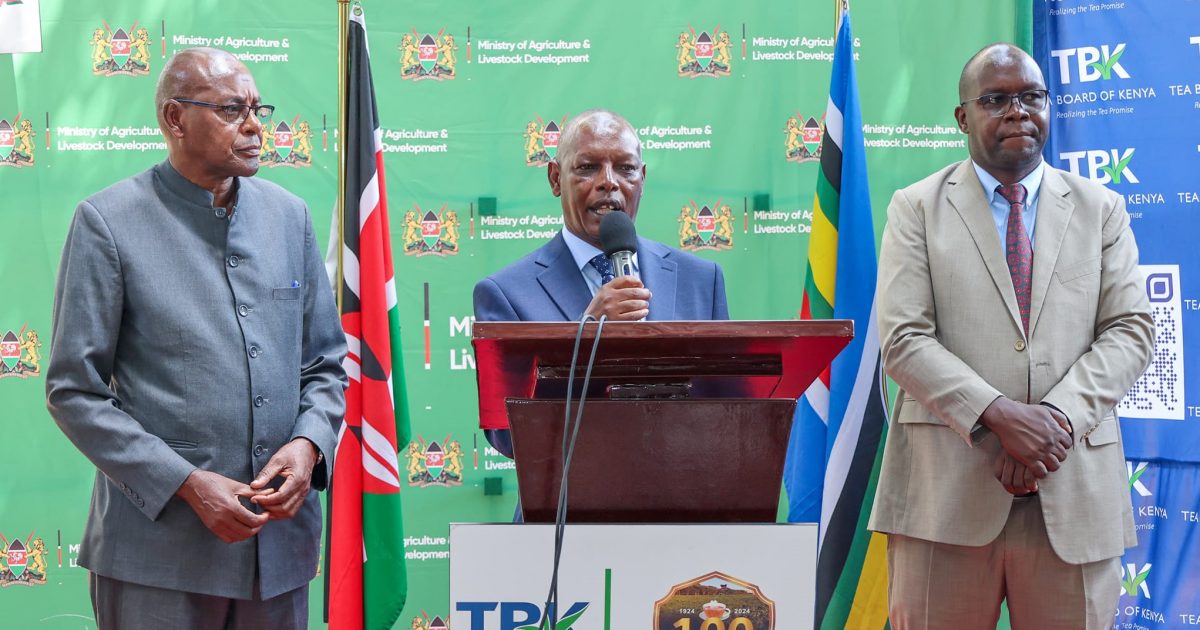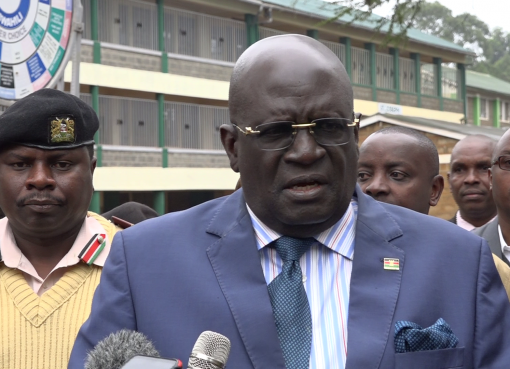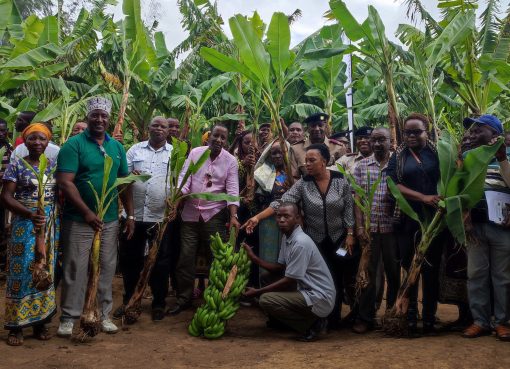As Kenya marks 100 years of commercially growing tea her focus for the next century now shifts to value addition and diversification to a wide range of varieties to meet different expectations in the market.
Agriculture and Livestock Development Cabinet Secretary (CS) Dr. Andrew Karanja said that the Kenyan tea has had a tremendous journey from the humblest beginning when the country only exported to one country at the beginning of the commercialization phase to today where it is being exported to over 90 destinations.
Speaking in Nairobi on Thursday during the launch of the Kenya tea industry centenary celebrations hosted by the Tea Board of Kenya, Dr. Karanja said that Kenya has been exporting tea as a raw material and as they look forward to the next100 years, they would like to export tea as a value added product.
“Further, stakeholders should strive to present tea as a “trendy” beverage for the youth by providing it in more tastes and forms, thereby making tea a real “any time” beverage like coffee,” said the CS.
He highlighted that over the years, tea has become a leading foreign exchange earner in Kenya and the source of direct and indirect livelihood to over six Million people along the value chain.
“In 2024, the industry earnings from exports hit Sh.180 billion from Sh138 billion the previous year. Notably, the performance for this year looks better compared to last year. Up to August this year, export earnings had surpassed that of last year by Sh21 billion to stand at Sh127 billion,” explained the CS.
Dr. Karanja added that the tea auction in Mombasa has grown and is now able to auction tea from neighbouring countries.
He disclosed that the government recognizes the role of the tea industry in driving the socio-economic development of the nation explaining that it is for this reason that tea forms part of the flagship projects in the agricultural sector under the Bottom-Up Economic Transformation Agenda (BETA) initiative.
“The role of tea is anchored on value addition for agricultural produce with a view to ensuring maximum returns across the value chain,” he said.
The CS said that currently, several regulations aimed at fully operationalizing the Tea Act, 2020 are nearing completion and his ministry will soon be gazetting these regulations.
“This will pave way to full implementation of reforms aimed at ensuring sustainability and enhanced performance of the tea industry,” he said.
The CS said that in 2024 tea production will cross the 600 million kilograms’ mark and the government will continue supporting the farmers with inputs like the subsidized fertilizer at Sh2,500 in efforts to ensure quality production.
Dr. Karanja said that they are looking at enhancing the quality with focus being on attracting more international buyers.
“The government together with tea stakeholders will be organizing trade missions to some of the countries which we have identified as potential buyers of our tea,” said Dr. Karanja.
The CS said that at the tea auction in Mombasa they suspended the minimum price directive which has led to a significant reduction in the volume of unsold tea.
Tea Board of Kenya (TBK) chairman Jacob Kahiu said the stocks of unsold tea at the Mombasa auction has come down to the highs of 100 million kilograms in 2023 to below 15 million kilograms in 2024.
Kahiu said that tea plays a big role in the country as about 22 percent of foreign exchange comes from tea and as a regulator, they are aggressively looking for more markets to absorb the approximately 650 million kilograms of tea that farmers are expected to produce this year.
Tea Board of Kenya CEO Willy Mutai said that considering that tea continues being viewed as a traditional drink, they will be focusing on the youth and bring them onboard in all the sectors of the value chain from production to marketing and eventually into consumption.
“The activities will involve youth engagement through media channels, knowledge transfer, capacity building and capitalizing on the strength and social fabric of the tea growing regions,” said Mutai.
He said that the highlights of the centenary celebrations will be on sustainability, innovation and global positioning of the Kenyan tea.
By Joseph Ng’ang’a





